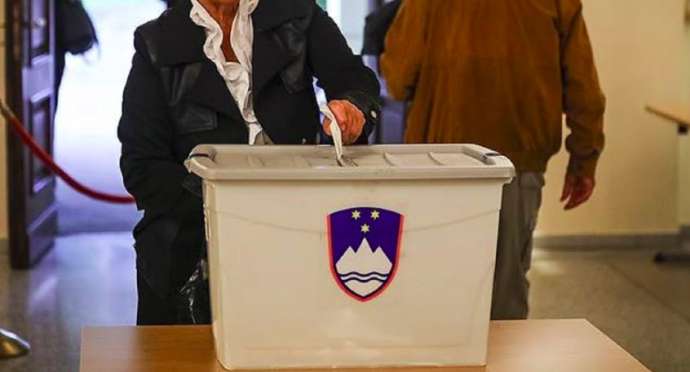STA, 28 May 2020 - President Borut Pahor and parliamentary Speaker Igor Zorčič met on Thursday to discuss the required reform of the electoral law, urging all stakeholders to find a solution to implement the relevant decision of the Constitutional Court by December. Pahor said he would like to address the National Assembly about the issue in June.
The meeting comes after the heads of parliamentary deputy groups and Zorčič agreed yesterday to leave it to the relevant ministry to draft proposals for redistricting.
The reform has hit a standstill after a bill which sought to abolish electoral districts and introduce a preference vote at the level of the existing eight electoral units narrowly fell short of the needed two-thirds majority in parliament in March.
Pahor, who has so far coordinated relevant meetings and consulted representatives of the parliamentary parties, experts and other stakeholders, said today that, after the latest failed attempt, politicians should find a solution by December.
Changes are required in line with the Constitutional Court's ruling from December 2018 that gave parliament two years to re-establish the one-person-one-vote rule, distorted by huge differences in the sizes of electoral districts.
Pahor, Zorčič and heads of the parliamentary deputy groups agree that the Public Administration Ministry come up with a redistricting proposal, which would then be discussed in the National Assembly.
This requires a smaller majority, at least 46 votes in the 90-member legislature, but the president warned that this would nevertheless be "very sensitive work politically".
Pahor and Zorčič agree that a relevant bill should be tabled by deputies. "It must not happen that the vote on the bill becomes a vote on the government," the president said in a press statement after the meeting.
Pahor also informed the speaker that he would like to address the National Assembly at the June session about the electoral law reform as "currently the most important issue regarding democracy".
The two agreed that a solution which would implement the Constitutional Court's decision should be found by December, otherwise Slovenia could be in a situation where the legitimacy and lawfulness of elections and democracy would be threatened.
Pahor said he had also discussed the issue with Prime Minister Janez Janša, who agreed that a solution needs to be found by December. The president hopes that Janša's Democrats (SDS) will support the redistricting, as the party is against their abolition.
Zorčič assessed that implementing the decision of Slovenia's top court was a first-rate political issue which transcended the division to the coalition and opposition, so he believes that all deputy groups will start solving this issue.
Janša told the public broadcaster TV Slovenija in the evening that the Constitutional Court had not requested that electoral districts be abolished, but that their borders be changed so that they represented a similar number of voters.
The prime minister pointed to the vast differences in size of electoral districts, which puts candidates in unequal position. He believes that the problem is easy to fix and announced a solution "which will hold water" for the autumn.







